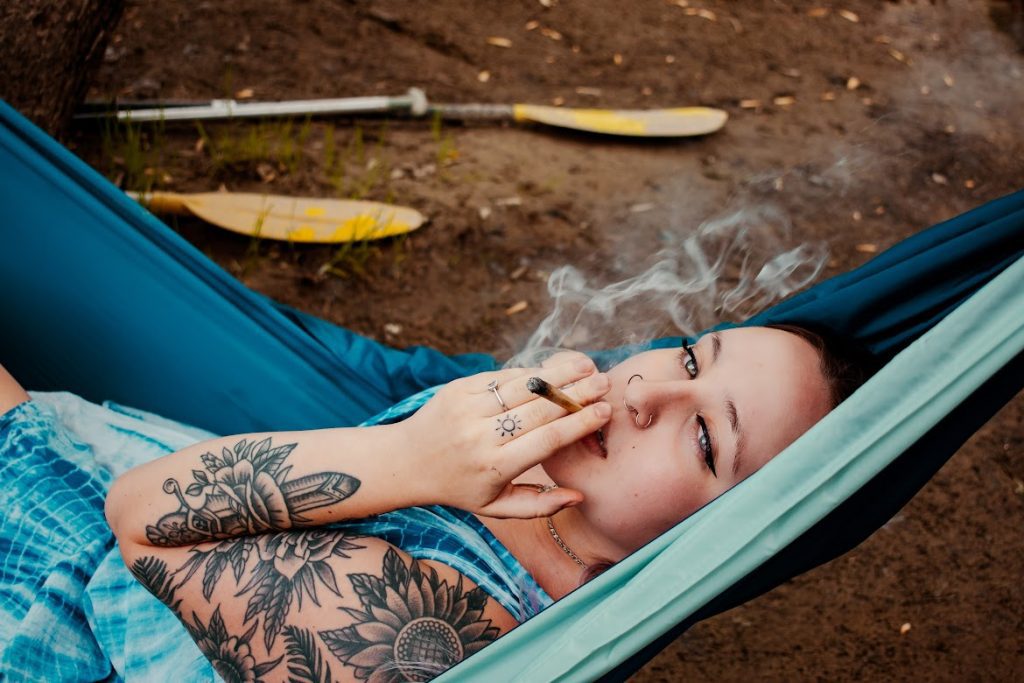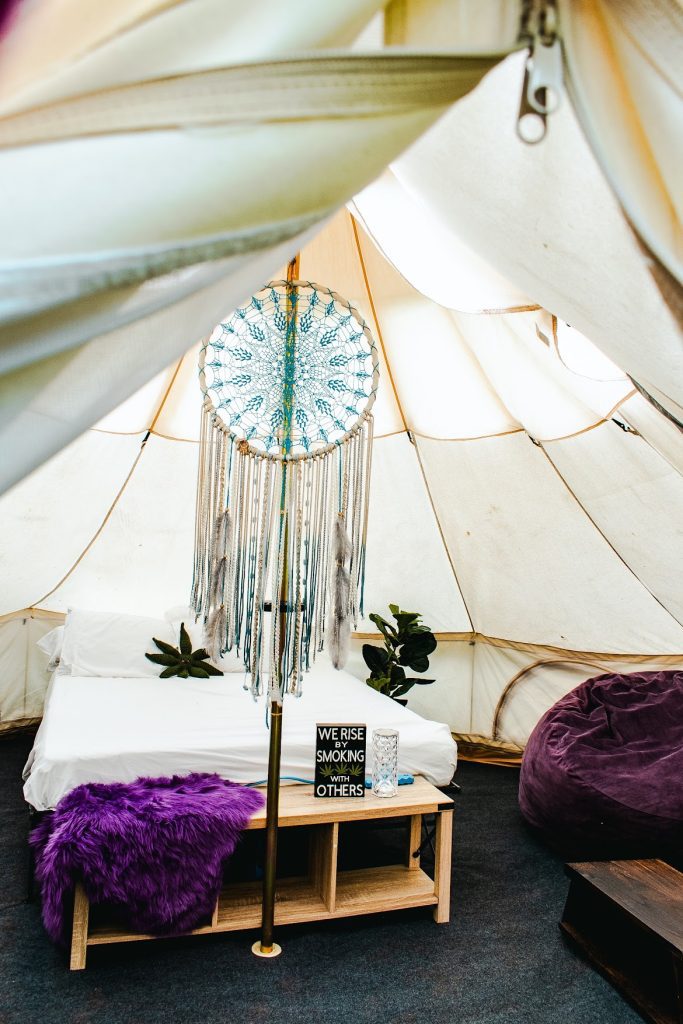Today, we’re diving into one of New England’s most unique and immersive cannabis experiences—Camp Laughing Grass. Over the years, I’ve seen it all—but Camp Laughing Grass offers something truly special. It’s not just a getaway; it’s a community built around the plant, elevated wellness, and cannabis connection.
Let’s take a deeper look into what makes this camp so unforgettable, talk to the people behind it, and explore how cannabis and nature come together in the most magical way at Camp Laughing Grass with Trinity Madison , founder and CEO.
Q&A with Trinity Madison, Founder of Camp Laughing Grass
1. What inspired the creation of Camp Laughing Grass, and how did the idea evolve into a full-fledged 420-friendly campground?
Throughout my upbringing, I immersed myself in the vibrant world of festivals and jam bands, which served as the foundation for my livelihood for nearly two decades. I derive immense pleasure from spending time in the woods, engaging in camping and immersing myself in nature’s embrace. Additionally, a deep-rooted passion for cannabis has been a constant companion. For seventeen years, I crafted hemp jewelry and edibles. Approximately fourteen years ago, I embarked on a professional journey in the edibles industry.
Initially, I envisioned establishing a bed and breakfast inn. However, my primary aspiration was to incorporate cannabis service into my operations. Despite identifying a potential loophole, I encountered strong opposition from the local community. Consequently, I was compelled to pivot to a model that would align with both state and town regulations. Fortunately, I discovered suitable options here in Harrison, Maine.
During my inaugural year, we launched our venture on Airbnb, utilizing a limited number of cabins and two tent sites. Within a short span of weeks, Airbnb actively promoted and sponsored advertisements for our 420-compliant campground. By the subsequent summer, we had successfully constructed our own website.

2. How does Camp Laughing Grass ensure a safe, inclusive, and enjoyable environment for cannabis enthusiasts of all experience levels?
I have created an inclusive and communal environment, where I have fostered a sense of belonging among campers. I have designated specific areas for the sharing of cannabis among fellow campers. Additionally, I provide access to the latest electronic and hot items available for cannabis consumption. Daily 420 gatherings are organized to introduce donated products from local dispensaries. During these gatherings, I provide insights into the differences in products and consistencies, fostering a safe and healthy environment for individuals to explore cannabis use.
3. What kinds of activities and experiences can guests expect during their stay, and how are they tailored to enhance the cannabis-friendly atmosphere?
Upon arrival at Camp, all campers are greeted with a warm and welcoming “welcome to weed camp” greeting. Following a personalized check-in and the signing of necessary waivers, campers are informed of the various activities and services available at the camp.
Each morning, a continental breakfast is served, creating a communal atmosphere where campers can socialize over coffee and cannabis. Additionally, the pavilion offers a wide range of craft projects for all campers. Furthermore, complimentary kayaks, canoes, and floats are available for use on the on-site river.
Each day at 4:20 p.m., a diverse range of events is hosted, including Canna charades, joint toss, bong pong, and tie-dying, with products provided by local dispensaries as sponsors.

4. How do you navigate state regulations and local attitudes around cannabis while operating a business like this in Maine?
In contrast to other cannabis establishments, we are exempt from state cannabis oversight agencies due to our absence of on-site cannabis sales. We have identified a legal loophole that permits us to operate while adhering to social consumption and social lounge regulations. While we hold a tobacco license, our primary business involves the sale of bowls, bongs, and electronic equipment, without any involvement in tobacco sales.
Harrison, Maine, has been exceptionally fortunate to welcome us and contribute to the growth of our campground. I am deeply grateful for the opportunity to have established this town and transformed it into the home of Camp Laughing Grass.
5. Have you seen any notable trends in the types of guests who visit—are they more seasoned cannabis users, curious newcomers, or a mix of both?
At Camp Laughing Grass, we extend an inclusive invitation to individuals from diverse backgrounds and interests. Our clientele encompasses a wide range of individuals, including cannabis users who seek a safe and social environment to relax and enjoy their preferred substance. Given the limited availability of places where cannabis can be used recreationally and in a social setting, we attract a significant number of newcomers to camping who are eager to experience this unique recreational activity.
Seasonal campers have established themselves as a loyal part of our community, returning year after year to make Camp Laughing Grass their sanctuary.
6. What do you envision for the future of Camp Laughing Grass, and how do you hope it influences cannabis tourism in New England and beyond?
In my opinion, this is merely the commencement of Camp Laughing Grass’s journey. I anticipate that in the near future, we will witness the emergence of similar establishments, not necessarily limited to this particular location, in legal recreational states. This demonstration of feasibility not only underscores the profitability and scalability of this business model, but it also suggests the potential for widespread expansion.
Laughing Grass International has already commenced the exploration of expanding the islands we visit. It is anticipated that they will incorporate additional islands into our adventure events as the US Virgin Islands transition to recreational status.


